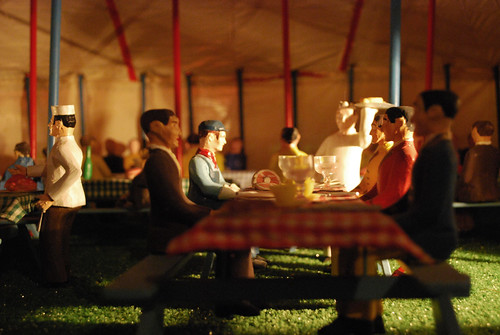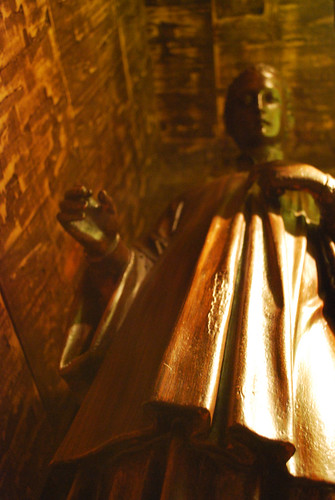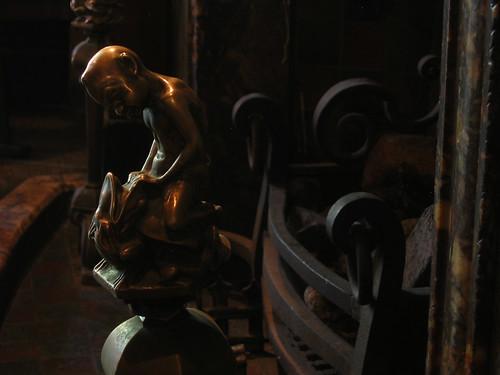All day longWhat made me sit up and take notice more than anything, however, were a couple of lines from book's long centerpiece, "Seasons of the Sacred Sex Maniac" (and oh, the disappointed Google searchers who are going to end up here because of that title!):
A tiger kept coming in and out.
The room was falling into ruin and
Broken arms, legs, and chairs were
Crying at the sky.
A black motorcycle runsI expect a lot of you are having the same reaction I did: Black motorcycles? Detectives? Hell, even raw flesh? These are images that immediately call to mind Roberto Bolaño's poetry. The black motorcycle turns up in a couple of poems in Bolaño's collection The Romantic Dogs: in the closing stanza of "The Last Savage"--
Tearing an August night right in two with its sound
The black motorcycle that runs up some raw flesh
Which is nobody
But myself
I'm a high holy master of the occult
A lewd detective that
Has mastered the art of self-division
I'd gone to see "The Last Savage," and on leaving the theatre--and in "The Donkey," where it is "like a donkey from another planet" and
had no place to go. In a sense I was
the character from the film, and my black motorcycle
carried me
straight to destruction.
A stolen bike, the last bikeDetectives, meanwhile, turn up throughout Bolaño's oeuvre, from the poetry--where they are frozen detectives, lost detectives, crushed detectives--to the title of The Savage Detectives to the criminally ineffectual police detectives of 2666.
Stolen to travel through the poor
Northern Lands, toward Texas,
Chasing an unnameable dream,
Unclassifiable, the dream of our youth,
Which is to say, the bravest of all
Our dreams.
Neither image, the black motorcycle or the detective, is so unusual that it's impossible to imagine the two poets hitting upon it independently. But their conjunction in "Seasons of the Sacred Sex Maniac" does make me wonder whether Bolaño might have come across Seasons of Sacred Lust as a young man in the early 1970s. It doesn't seem too far-fetched to imagine that Shiraishi's connections with the beats and her popular jazz-backed public readings could have brought her to Bolaño's attention, even if she wasn't translated into Spanish (which, for all I know, she might have been). And much of her imagery--sexual and violent, awkward and surreal--could easily be read as a precursor to and influence on Bolaño's startling, uncanny metaphors.
I don't have any sort of definite answer; I'd hoped that The Savage Detectives, with the staggering number of obscure poets it name-drops, might offer the key, but Shiraishi's name is nowhere to be found in its pages. Yet again, as has happened countless times in the past year, I find myself wishing that Bolaño's essays were already available in English translation--maybe, once they are, they'll offer a clue.
Until then, anyone out there know anything more about this possible connection?



